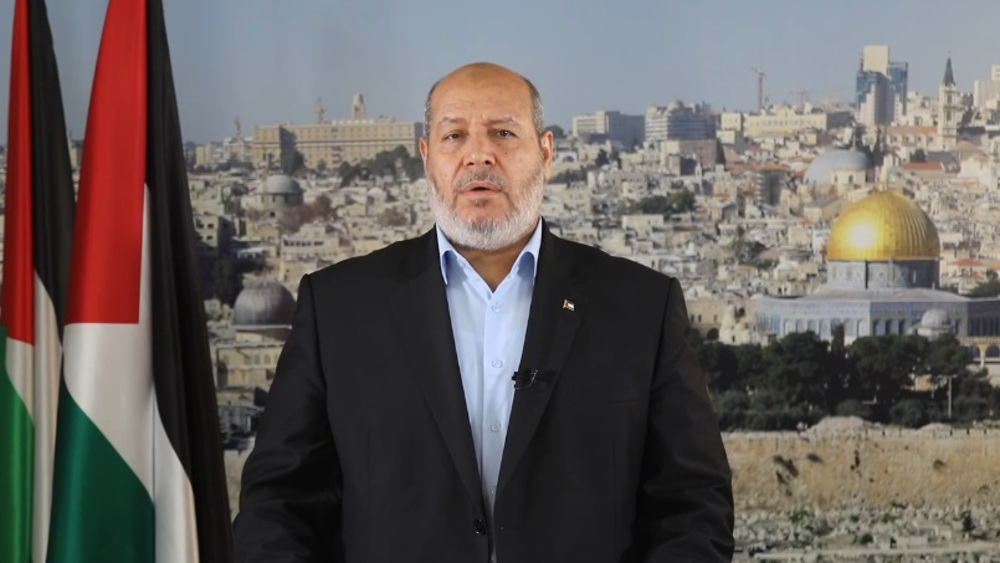Iran has PhD in going around sanctions: Foreign Minister Zarif
Foreign Minister Mohammad Javad Zarif says Iran will do its utmost to export oil after the US tightened its sanctions against the country, stressing that the Islamic Republic — which has been the target of cruel American bans for decades — has gained much experience in going around such restrictive measures.
Zarif said in an exclusive interview with Reuters on Wednesday that Washington’s sanctions hurt ordinary Iranians, but that the government would do whatever it could to sell oil to provide for its citizens.
“I mean there are always ways of going around the sanctions. We have a PhD in that area,” he told Reuters during his trip to New York.
Earlier this week, the White House once again took aim at Iran’s oil sector, ending six months of waivers which allowed Tehran’s eight largest customers to continue importing limited volumes.
It threatened the buyers of Iranian oil with sanctions if they fail to stop their purchases by May 1, in a move that quickly sent global crude prices to their highest levels since last November.
The anti-Iran American sanctions had been lifted under a 2015 multilateral nuclear deal with Iran, but they returned in place when the US abandoned the landmark agreement — officially called the Joint Comprehensive Plan of Action (JCPOA).
Asked who else Iran might consider exporting oil to, Zarif replied, “If I told you, we won’t be able to sell it to them.”
Iran has said it may close the Strait of Hormuz if prevented from using the strategic waterway, through which one third of the world’s seaborne oil passes.
Asked whether American warships could still pass through the waterway, Zarif said, “Ships can go through the Strait of Hormuz.”
Read more:
“If the United States wanted to continue to observe the rules of engagement, the rules of the game, the channels of communication, the prevailing protocols, then in spite of the fact that we consider US presence in the Persian Gulf as inherently destabilizing, we’re not going to take any action,” he noted.
Commenting on the US blacklisting of Iran’s Islamic Revolution Guards Corps (IRGC), the top diplomat suggested that Tehran did not plan to respond militarily to the “absurd” move unless Washington changed the rules of engagement.
“We will exercise prudence but it doesn’t mean that if the United States changed the rules of the game, or changed the rules of engagement, it would be able to get away with that,” Zarif said.
On April 8, the White House labeled Iran “a State Sponsor of Terrorism” and the IRGC a “foreign terrorist organization,” claiming that the elite force “actively participates in, finances, and promotes terrorism as a tool of statecraft.”
In a counter-measure, Iran designates American forces in West Asia, known as the United States Central Command (CENTCOM) as terrorists.
‘Iran not after war, but will defend itself’
Commenting on the US administration’s highly hostile Iran policy, Zarif said he believed President Donald Trump does not want war with Iran, but that he could be “lured into” a conflict by the hawkish politicians close to him at home and abroad.
“I don’t think he wants war,” he said. “But that doesn’t exclude him being basically lured into one.”
Zarif added that the hawkish “B-team” — comprising US National Security Adviser John Bolton, Israeli Prime Minister Benjamin Netanyahu, Saudi Crown Prince Mohammed bin Salman and Abu Dhabi Crown Prince Mohammed bin Zayed Al Nahyan — could goad Trump into a conflict with Tehran.
“Those who have designed the policies that are being pursued do not simply want a negotiated solution. But let me make it clear that Iran is not seeking confrontation, but will not escape defending itself,” he said.
Jan. 15: ‘Axis of Resistance’ operations against Israeli occupation
VIDEO | US fires: Criticism mounts over govt. failure to respond
VIDEO | Fears, hope in Gaza amid intensified ceasefire efforts
VIDEO | Press TV's news headlines
Hamas: Ceasefire agreement result of steadfastness, resistance in Gaza over 15 months
Hamas thanks Iran, Resistance Front following achievement of ceasefire in Gaza
'Capitulation': Israeli officials and media concede Gaza defeat as truce unfolds
'Gaza has won': Social media users react to ceasefire with mix of relief, joy
















 This makes it easy to access the Press TV website
This makes it easy to access the Press TV website